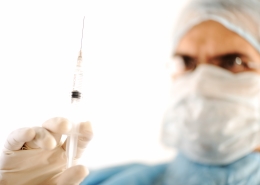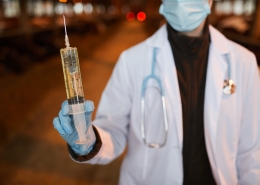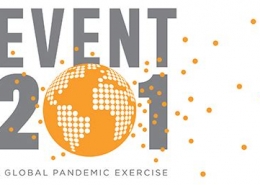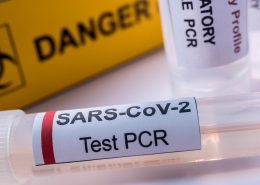PCR -dokumentet, som staten “pludselig mistede”
Disse meget VIGTIGE studier, har staten været i besiddelse af… men pludselig forsvandt de, og ingen kunne huske noget. Men her er de så…
Det første dokument “Impact of false-positives and false-negatives in the UK’s COVID-19 RT-PCR testing programme”, er skrevet af Carl Mayers & Kate Baker, 3. juni 2020
RT-PCR tests are highly sensitive, but can show false negatives (giving a negative result for a person
infected with COVID-19) and false positives (giving a positive result for a person not infected with COVID-19).
The RT-PCR assays used for the UK’s COVID-19 testing programme have been verified by PHE, and show over 95% sensitivity and specificity. This means that under laboratory conditions, these RT-PCR tests should never show more than 5% false positives or 5% false negatives.
Hent PDF-filen her: S0519_Impact_of_false_positives_and_negatives
Det andet studie er fra IDSA, som bla. skriver:
At the beginning of the outbreak, we correlated Ct values obtained using our PCR technique based on amplification of the E gene and the results of the culture [8]. Since the beginning of the pandemic, we have performed 250 566 SARS-CoV-2 RT-PCR for 179 151 patients, of whom 13 161 (7.3%) tested positive. Up to the end of May, 3790 of these samples, reported as positive on nasopharyngeal samples, were inoculated and managed for culture as previously described [8]. Of these 3790 inoculated samples, 1941 SARS-CoV-2 isolates could be obtained after the first inoculation or up to 2 blind subcultures. The correlation between the scanner values and the positivity of the culture allows us to observe that the image obtained with 10 times more isolates than in our preliminary work (1941 vs 129) does not change significantly (Figure 1). It can be observed that at Ct = 25, up to 70% of patients remain positive in culture and that at Ct = 30 this value drops to 20%. At Ct = 35,
the value we used to report a positive result for PCR, < 3% of cultures are positive
Hent PDF-filen her: ciaa1491
Det tredje studie er fra Universitetshospitalet i Madrid, Spanien, som bla. skriver:
FALSE-NEGATIVE RESULTS OF INITIAL RT-PCR ASSAYS FOR COVID-19:
A SYSTEMATIC REVIEWBackground: A false-negative case of severe acute respiratory syndrome coronavirus 2 (SARS-CoV-
2) infection is defined as a person with suspected infection and an initial negative result by reverse
transcription-polymerase chain reaction (RT-PCR) test, with a positive result on a subsequent test.
False-negative cases have important implications for isolation and risk of transmission of infected
people and for the management of coronavirus disease 2019 (COVID-19). We aimed to review and
critically appraise evidence about the rate of RT-PCR false-negatives at initial testing for COVID-19.
Hent PDF-filen her: 2020.04.16.20066787v2.full
Det fjerde og sidste studie er USA og lavet af Andrew N. Cohen og Bruce Kessel. Her står bla.
False positives in reverse transcription PCR testing for SARS-CoV-2
The high false discovery rate that results, when prevalence is low, from false positive rates typical
of RTPCR assays of RNA viruses raises questions about the usefulness of mass testing; and indicates that across a broad range of likely prevalences, positive test results are more likely to be wrong than are negative results, contrary to public health advice about SARS-CoV-2 testing. There are myriad clinical and case management implications. Failure to appreciate the potential frequency of false positives and the consequent unreliability of positive test results across a range of scenarios could unnecessarily remove critical workers from service, expose uninfected individuals to greater risk of infection, delay or impede appropriate medical treatment, lead to inappropriate treatment, degrade patient care, waste personal protective equipment, waste human resources in unnecessary contact tracing, hinder the development of clinical improvements, and weaken clinical trials. Measures to raise awareness of false positives, reduce their frequency, and mitigate their effects should be considered.
Hent PDF-filen her: 2020.04.26.20080911v1.full










